A day before I saw the RSC production of The Buddha of Suburbia, a private school principal and I were chatting in his office about some of author Hanif Kureishi’s themes – whether they still resonate with readers and audiences today.
Kureishi’s debut and seminal The Buddha of Suburbia (1990) is loosely semi-autobiographical and set in the 1970s south London.
It tells the story of Karim Amar, an aspiring teenage actor of mixed-race background, circuitously making his way in the confusion of having both white and Indian identities.
It contains taboos – infidelity, divorce, the lure of western music, and gay sexuality, and mutual masturbation.
Emma Rice directs (and co-adapts with Kureishi) the 1990 novel for the stage, and, on the whole, does a pleasing job.
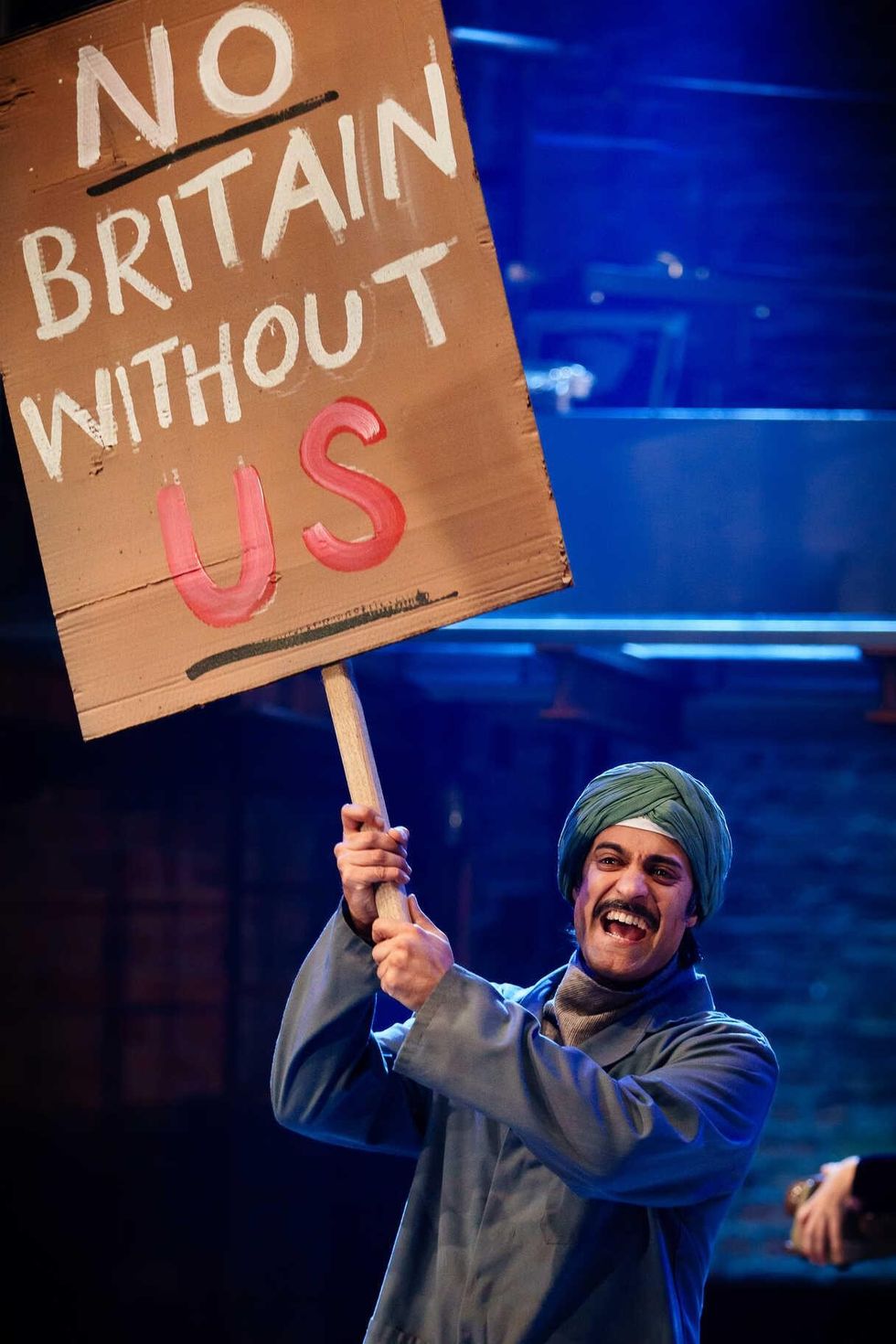
The play has Karim ‘…an Englishman born and bread. Almost’ (played by Dee Ahluwalia) narrating the story into the microphone stand. He looks like a comedian as he flutters from the present to the past, and from the past to the future, while Rice intersperses his story with slow motion, dance routines and pauses.
Rice provides a relatively faithful interpretation of the work by trying to cram as much of the book as possible.
The 1970s’ sound track gives the show a certain coolness, but choreography is a bit messy, humour thin, and running at almost three hours in length, the production is a bit long and could work equally well as a two-hour story.
However, Rice gets a good performance out of Ahluwalia. His presence on stage and address to the audience contain just the right tone, charm, and cynicism. His demeanour, poise, and camp dress are pleasure to watch.
Tommy Belshaw as the egotistical Charlie – who compares himself with David Bowie – is also colourfully flamboyant, while Ankur Bahil’s cold Haroon injects the right level of emotional detachment and pathos to render him both a victim and perpetrator of the destruction of his marriage (his headstand pose that seems to last a life time is amazing).
Other notable actors deserve a mention, including Ewan Wardrop. His comical and satirical portrayal of Matthew Pyke (the director who is into wife swapping) is sparkling and amusing, with the overtones of the all-too familiar seaside postcard titillation relating to sex toys and bananas.
Raj Bajaj who delivers an innocent and charming performance as the child-like, disillusioned Indian, Changez, and Natasha Jayetileke who plays the jubilant Jamila (a feminist with a healthy appetite for both sex and politics), provides the right mix of frivolity and maturity, while Lucy Thackeray’s hippy Eva is just as enticing as Eva finds Haroon’s exotic personality and Eastern mysticism.
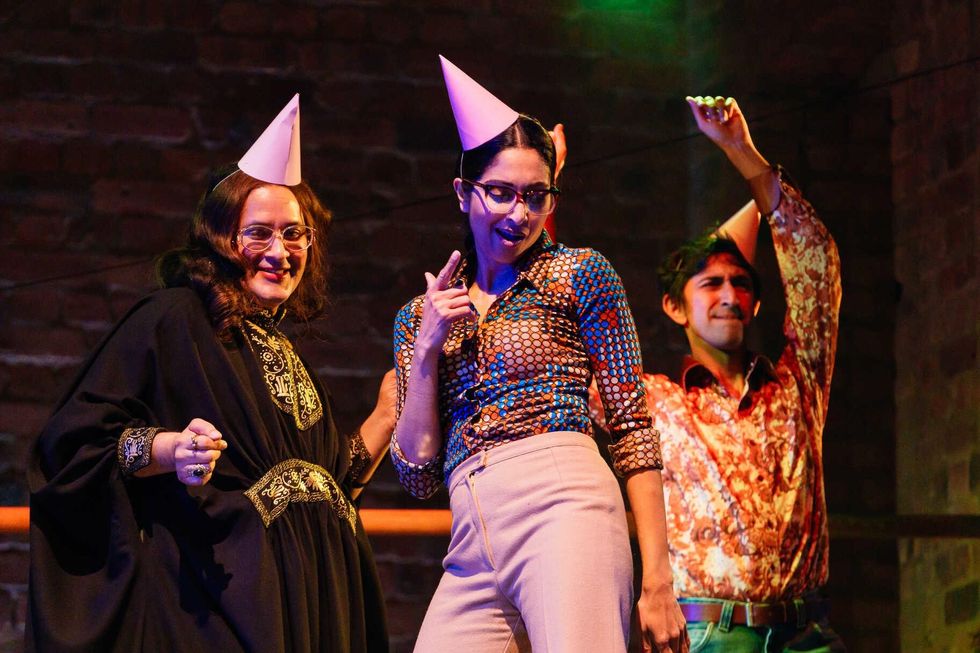
Set in the 1970s with the coming of age as the backdrop and sprinkled with racism, prejudice, and far-right violence, the jury is still out as to whether The Buddha of Suburbia is just as relevant now as it was 30-40 years ago or whether the perimeters for this debate have changed. As my friend, the school principal alluded, since 9/11 we have been moving towards a different form of racism. Today it is brown on brown racism in Asian communities – manifesting in cultural suspicion, religious intolerance, anti-Semitism, and homophobia – that we need to address.
Rating: *** (3 stars)
The Buddha of Suburbia written by Hanif Kureishi
Directed by Emma Rice
Swan Theatre, RSC, Stratford Upon Avon
Until June 1, 2024






 Shefali Jariwala dies at 42 after cardiac arrest, industry mourns Kaanta Laga starInstagram/
Shefali Jariwala dies at 42 after cardiac arrest, industry mourns Kaanta Laga starInstagram/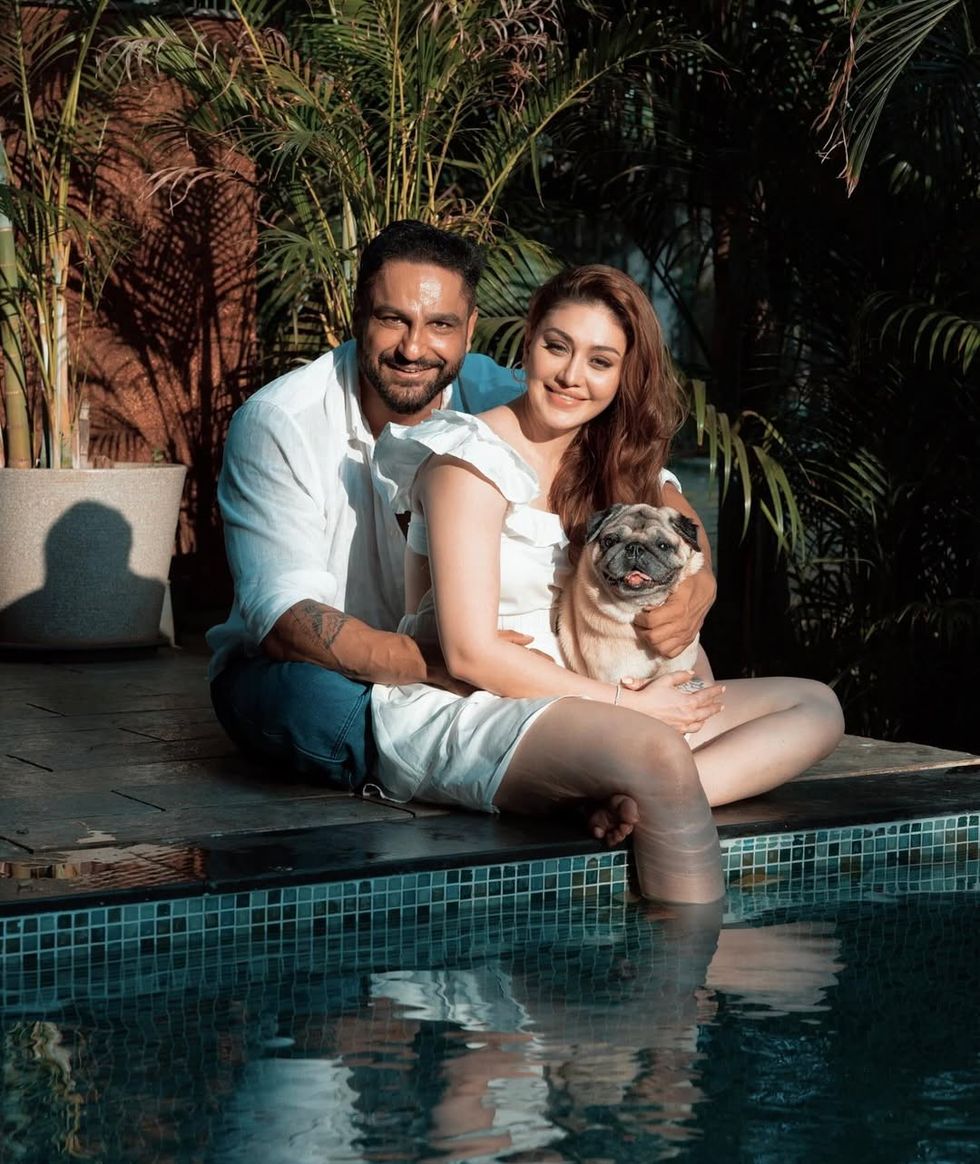 Shefali Jariwala was married to actor Parag Tyagi,Instagram/
Shefali Jariwala was married to actor Parag Tyagi,Instagram/








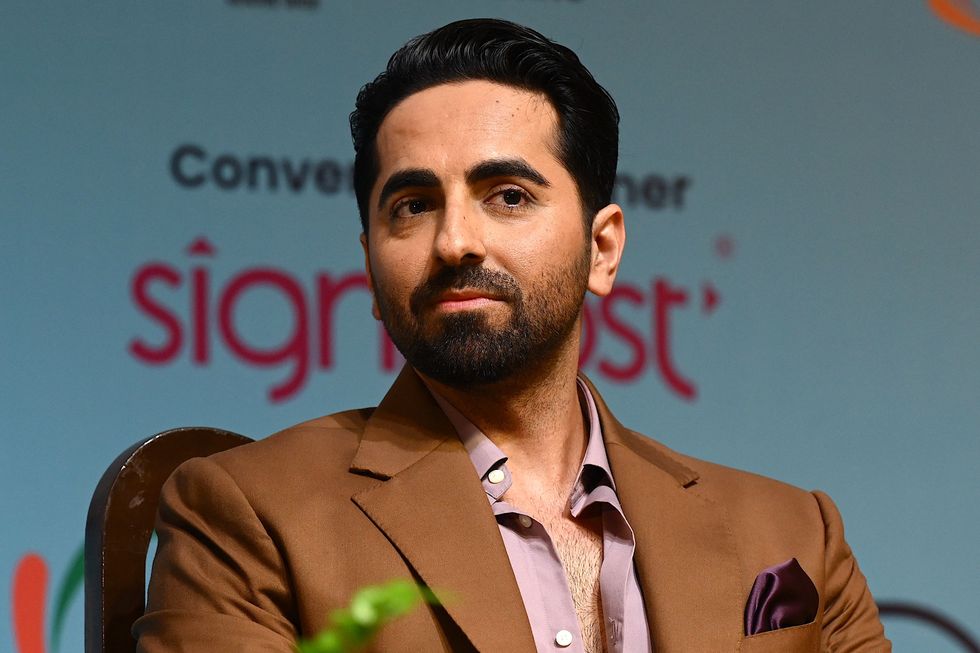 Ayushmann Khurrana attends an event at the FICCI Frames 2024 Getty Images
Ayushmann Khurrana attends an event at the FICCI Frames 2024 Getty Images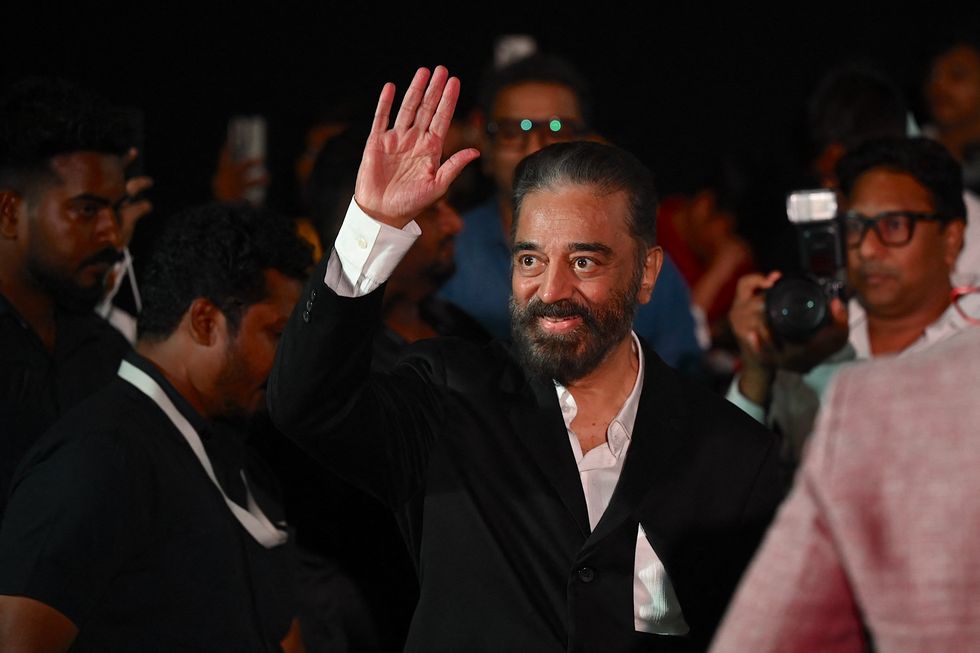 Kamal Haasan waves as he attends a press conference for 'Thug Life'Getty Images
Kamal Haasan waves as he attends a press conference for 'Thug Life'Getty Images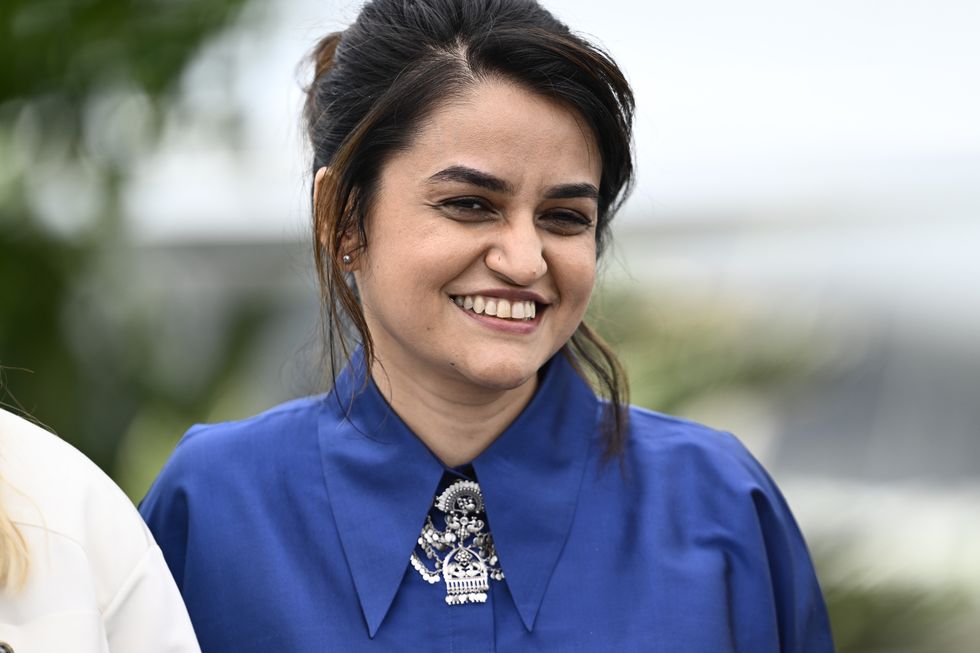 Payal Kapadia smiles during the Jury photocall at the 78th annual Cannes Film FestivalGetty Images
Payal Kapadia smiles during the Jury photocall at the 78th annual Cannes Film FestivalGetty Images
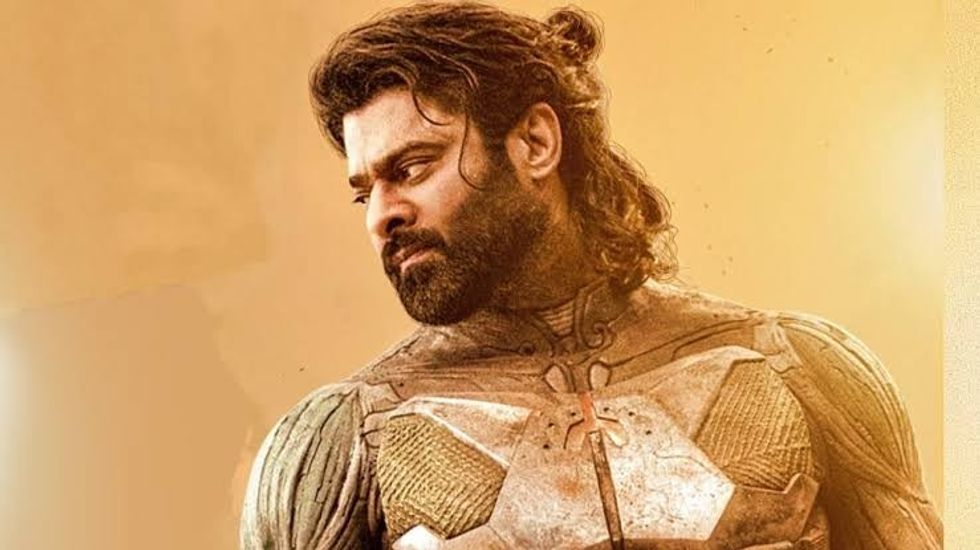 Prabhas in a still from Kalki 2898 AD which completed one yeargetty images
Prabhas in a still from Kalki 2898 AD which completed one yeargetty images Kalki 2898 AD became one of the top three biggest openers in Indian cinemagetty images
Kalki 2898 AD became one of the top three biggest openers in Indian cinemagetty images Kalki 2898 AD brought together sci-fi and mythology in a first-of-its-kind Indian filmgetty images
Kalki 2898 AD brought together sci-fi and mythology in a first-of-its-kind Indian filmgetty images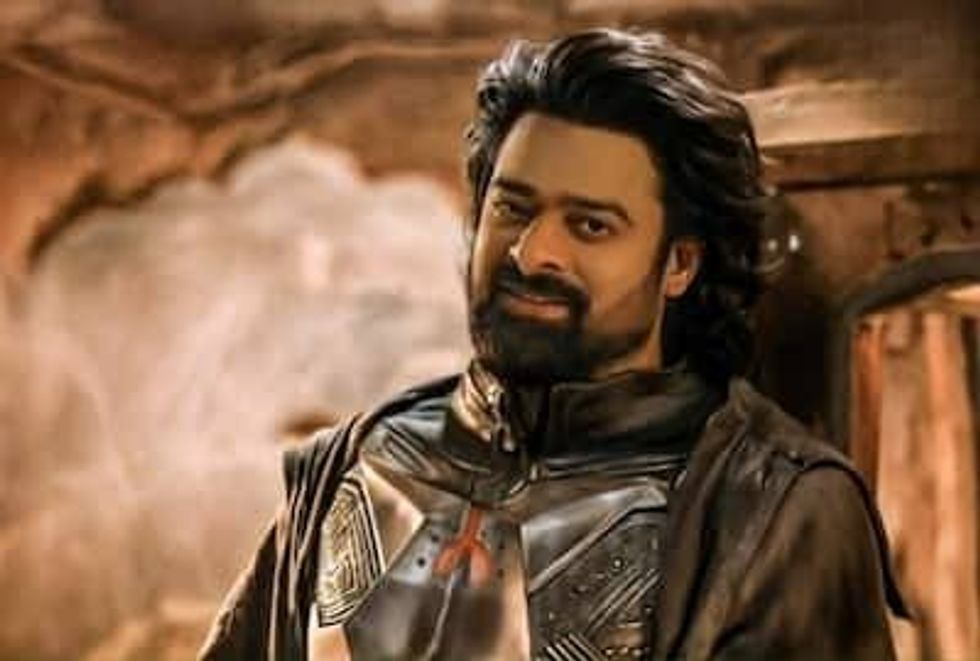 Prabhas plays the futuristic warrior Bhairava in Kalki 2898 AD getty images
Prabhas plays the futuristic warrior Bhairava in Kalki 2898 AD getty images Prabhas in action during a high-intensity sequence from Kalki 2898 ADgetty images
Prabhas in action during a high-intensity sequence from Kalki 2898 ADgetty images
 Anusha Mani
Anusha Mani
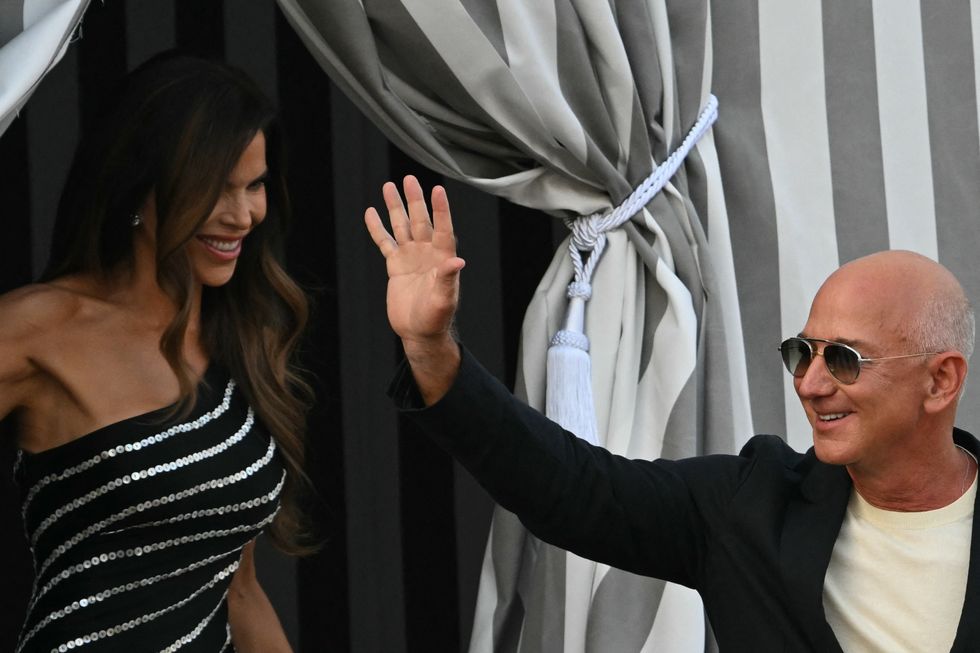 Lauren Sanchez and Jeff Bezos leave the Aman Hotel in Venice ahead of their wedding Getty Images
Lauren Sanchez and Jeff Bezos leave the Aman Hotel in Venice ahead of their wedding Getty Images 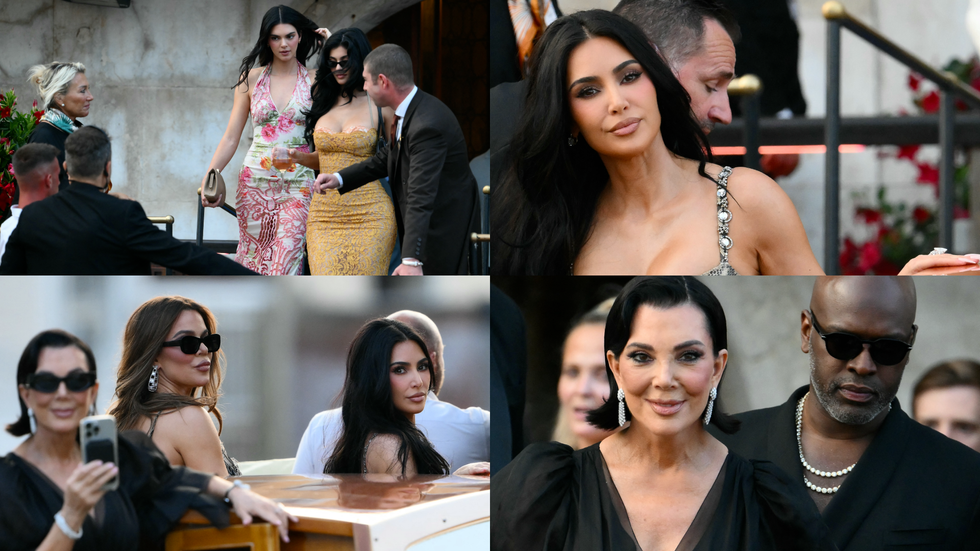 Kardashians seen boarding a boat ahead of the evening celebrations in VeniceGetty Images
Kardashians seen boarding a boat ahead of the evening celebrations in VeniceGetty Images 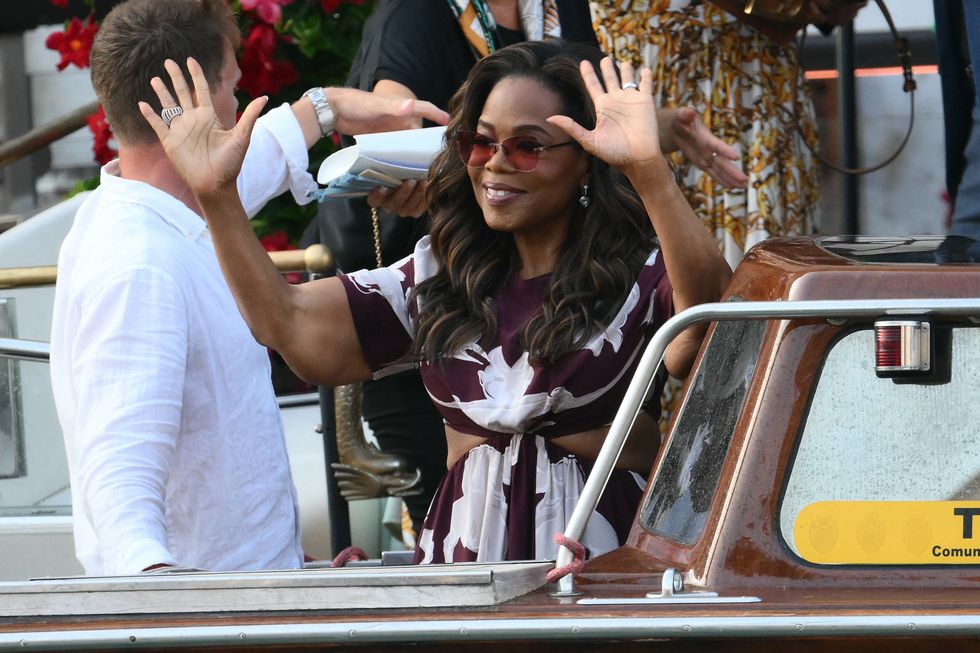 Oprah Winfrey wave to fans while heading to the welcome event Getty Images
Oprah Winfrey wave to fans while heading to the welcome event Getty Images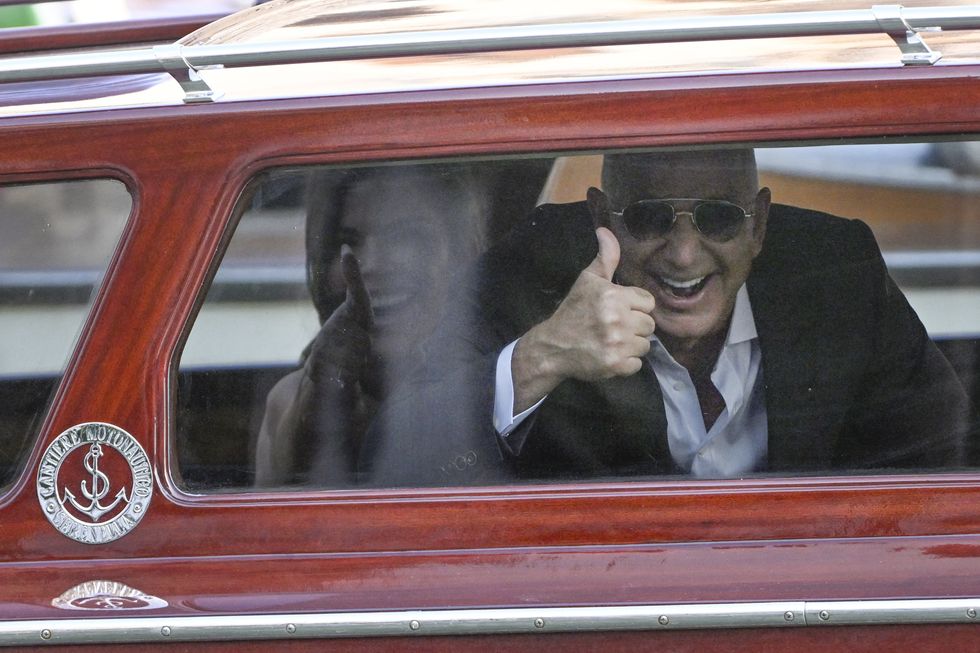 Jeff Bezos and Lauren Sanchez gesture in direction of Bezos' lookalike from the taxi boatGetty Images
Jeff Bezos and Lauren Sanchez gesture in direction of Bezos' lookalike from the taxi boatGetty Images